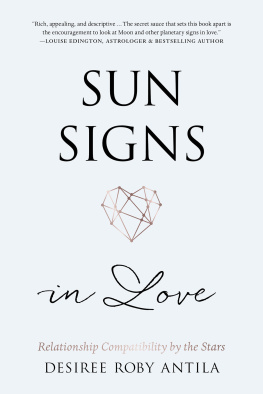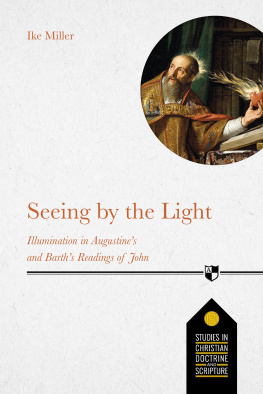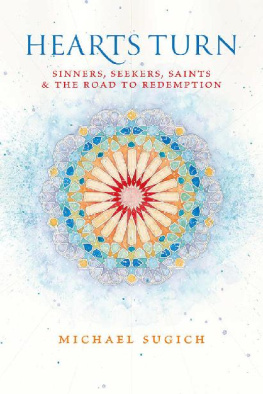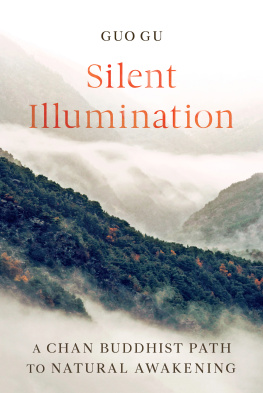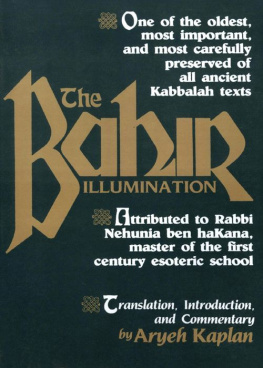Sugich - Signs on the horizons: meetings with men of knowledge and illumination
Here you can read online Sugich - Signs on the horizons: meetings with men of knowledge and illumination full text of the book (entire story) in english for free. Download pdf and epub, get meaning, cover and reviews about this ebook. City: San Bernardino;CA, year: 2014, genre: Religion. Description of the work, (preface) as well as reviews are available. Best literature library LitArk.com created for fans of good reading and offers a wide selection of genres:
Romance novel
Science fiction
Adventure
Detective
Science
History
Home and family
Prose
Art
Politics
Computer
Non-fiction
Religion
Business
Children
Humor
Choose a favorite category and find really read worthwhile books. Enjoy immersion in the world of imagination, feel the emotions of the characters or learn something new for yourself, make an fascinating discovery.

Signs on the horizons: meetings with men of knowledge and illumination: summary, description and annotation
We offer to read an annotation, description, summary or preface (depends on what the author of the book "Signs on the horizons: meetings with men of knowledge and illumination" wrote himself). If you haven't found the necessary information about the book — write in the comments, we will try to find it.
Sugich: author's other books
Who wrote Signs on the horizons: meetings with men of knowledge and illumination? Find out the surname, the name of the author of the book and a list of all author's works by series.
Signs on the horizons: meetings with men of knowledge and illumination — read online for free the complete book (whole text) full work
Below is the text of the book, divided by pages. System saving the place of the last page read, allows you to conveniently read the book "Signs on the horizons: meetings with men of knowledge and illumination" online for free, without having to search again every time where you left off. Put a bookmark, and you can go to the page where you finished reading at any time.
Font size:
Interval:
Bookmark:
SIGNS
ON THE HORIZONS
We shall show them Our Signs on the horizons and in themselves,
till it is clear to them that it is the Truth.
Is it not enough that your Lord
is a Witness over everything?
The Holy Quran
For the people, in short, in joy and sorrow
He was an exemplar in the world, a sign.
Faridud-din Attar
The Saints are Gods Signs
which He recites to His servants
by disclosing them one after another.
Abul Abbas Al Mursi

Copyright 2013 Michael Sugich
All rights reserved
No part of this publication may be reproduced,
stored in a retrieval system, or transmitted in any form or by any means, electronic or mechanical, including photocopying, without the written permission of the author.
ISBN 978-0-9893640-1-0
Designed by Shems Friedlander
Cover Photo View from Jebel Noor by Peter Sanders
For my children
Kulthum, Muhsin, Abu Bakr, Sulafa, Ahmad and Habiba
And dedicated to the memory of Gai Eaton
CONTENTS

Divine Wisdom Never Runs Dry.
Moulay Al-Arabi Ad-Darqawi
INTRODUCTION
M emory for most of us is a compendium of our senses, vivid or muted images that resonate and remind us of time and age and achievement and loss. We experience our lives as a chain of events leading to each succeeding moment and we each live our personal history as its protagonist. In this continuum we find points of clarity and are touched by men and women who change us in some essential way. For most of humanity, it is our parents who shape us for better or for worse. For some, an individual a teacher, a leader, an intellectual, an artist, a loving friend someone stronger and more experienced than we are someone who introduces us to another world. The impact these people have upon us is often inadvertent, sometimes misguided and occasionally inspired.
This is a book of memories, a commemoration of remarkable men who have defined my life, and I dare say, the lives of many others. While a few have been celebrated, most have passed through life in obscurity. Inwardly driven, they have had an alchemical impact on me for precisely the reason that they are unknown. They did not seek anything from the world; not recognition, position, wealth, influence, prestige or admiration. They were not ethereal or otherworldly, nor were they powerful in the sense most of us imagine saints and holy men to be. What characterized every one of these men was humility, kindness, sweetness of temper, patience, insight, and, most importantly, the remembrance of God at all times. By and large, they are men who have transcended the ordinary and achieved stations of spirituality and enlightenment we in the West only attribute to the Biblical fathers of ancient times or to myth. They are hidden treasures. At this writing, some are still alive but most have passed away. They are missed.
Ive often wondered why Ive had the great good fortune to have come into contact with these men. I am as worldly as the next person and have done nothing to merit their attention. Im not particularly adventurous. Im not overly religious or contemplative. I am neither a scholar nor a saint. On reflection, I've come to the conclusion that my contact with these great men has been in direct proportion to my sense of distress, helplessness and need.
The 18th century Sufi Shaykh Ali Al-Jamal, said, "If people knew how many secrets and benefits are to be found in need, they would have no other need than to be in need. His successor, the sublime Shaykh Moulay Al 'Arabi Ad-Darqawi wrote, "Distress (faqah) is nothing but intensity of need." and "There is no doubt that, for men of God, their best moment is a moment of distress, for this is what fosters their growth. He refers to Al-Hikam of Ibn Ata'illah Al-Iskandari, saying, "The best of your moments is that in which you are aware of your distress and thrown back upon your own helplessness it may be that in distress you will find benefits that you have been unable to find either in prayer or in fasting.
Of course, we hate distress in our lives. We avoid it like the plague. I know I do. But it is in times of trouble, when we exhaust all our options and are forced to turn to God in extreme need, that we approach the essence of reality. One of the saints profiled in this volume, Moulay Abu'l Qasim, may God be well pleased with him, would say to us that there is nothing God loves more than His slave, helpless, weeping, with hands outstretched in supplication. He said this with tears of yearning in his eyes. Perhaps I have a greater sense of helplessness and need than many even though on the surface of things I appear to be strong and my life has been comfortable and relatively trouble free. When my sense of need has been strongest these men have appeared in my life, like divine instruments.When my feeling of helplessness has diminished and given way to a sense of empowerment and complacency or when Ive been overcome by my passions and worldly concerns, these men have receded from my life and I miss them terribly.
When the Sufi Shaykh Abu'l Hassan Al-Shadhili was asked why he did not write books, he replied, "My companions are m-books." Most of the men described in this volume are Sufis. Almost every one of them has been disciplined and guided "written by a spiritual master. This volume is a personal celebration of this process.
Many of my contemporaries have had more profound and more prolonged contact than I with these and other great men of the Way, but have kept their own experiences to themselves. For many years I hesitated to commit these personal memories to writing partially because I considered the act of revealing these encounters to be close to hubris and partially because I was living in the Kingdom of Saudi Arabia where the practice of Sufism was banned by the religious authorities.
We have lost the meaning. We are living in an age that overwhelmingly revels in the world, alternating between euphoria and anxiety. We are oblivious to the subtle blessings and hidden realities that permeate existence. The men described on the following pages lived in the realm of meaning. They are signs on the horizons. Bless them all.


Surely being is meaning set up in images.
Those who grasp this are people of discernment.
Shaykh Mohamed ibn Al-Habib
ACKNOWLEDGEMENTS
I first conceived of the idea of writing about men of God (Ri-jala llah) that I have met over a quarter of a century ago when the photographer Peter Sanders and I discussed the idea of recording biographies of these men and others, in the tradition of the anecdotal hagiographies of saints that has existed in Islam since the beginning: Khatam Al-Awliya of Tirmidhi, Tadhkirat Al-Awliya of Attar, Hiliyat Al-Awliya of Abu Nuaym and the Ruh Al-Quds and Al-Durrat Al-Fakhirah of Ibn Al-Arabi. We wanted to show in the most vivid way possible that men of profound spirituality are still with us. The project as originally conceived was more ambitious and would have required years of time and extensive travel to track down and interview hundreds of people who had known the great 20th century Sufis. However, we both had growing families and responsibilities that made the project highly impractical. For year after year we put this enterprise off, yet it was always at the back of both our minds. Both of us are passionate about the transcendent gifts these men have brought to our lives personally and to the world.
Next pageFont size:
Interval:
Bookmark:
Similar books «Signs on the horizons: meetings with men of knowledge and illumination»
Look at similar books to Signs on the horizons: meetings with men of knowledge and illumination. We have selected literature similar in name and meaning in the hope of providing readers with more options to find new, interesting, not yet read works.
Discussion, reviews of the book Signs on the horizons: meetings with men of knowledge and illumination and just readers' own opinions. Leave your comments, write what you think about the work, its meaning or the main characters. Specify what exactly you liked and what you didn't like, and why you think so.



